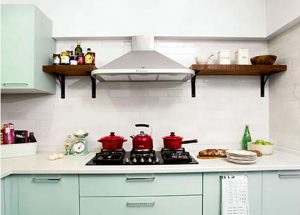These common cooking habits could be slowly poisoning you!

Health experts are increasingly aware that some common kitchen habits may have long-term effects on our well-being. While your kitchen is generally a safe space, it’s worth knowing how certain routines could impact your health over time.
Here are some everyday practices to be mindful of:
1. Using old or scratched non-stick pans
Non-stick pans are convenient, but if they’re scratched or damaged—especially older pans—they can release small amounts of chemicals into your food. Modern non-stick coatings are safer than older versions, but it’s still best to replace pans that are worn out or damaged.
Tip: Switch to ceramic, stainless steel, or newer non-stick pans if yours are scratched.
2. Overheating cooking oil
When oil is heated beyond its smoke point, it can break down and release acrolein, a chemical that irritates the lungs and may be harmful with repeated exposure. Each oil has a different smoke point, so it’s important to cook within the recommended temperature range.
Tip: Learn the smoke points of your favorite oils and avoid letting them smoke.
3. Microwaving food in plastic containers
Not all plastics are safe for microwave use. Some can leach chemicals like BPA and phthalates into food when heated, especially if they aren’t labelled “microwave-safe.” These chemicals have been linked to hormonal and reproductive issues in high amounts.
Tip: Use glass or microwave-safe containers for reheating food.
4. Wrapping hot or acidic foods in aluminium foil
Aluminium foil is useful for cooking, but wrapping hot or acidic foods in it can cause small amounts of aluminium to transfer to your food. While most studies show this isn’t a significant health risk for most people, it’s a good idea to limit this practice, especially if you have kidney issues.
Tip: Let food cool before wrapping in foil, or use parchment paper as an alternative.
5. Using the same kitchen sponge for too long
Kitchen sponges can quickly become breeding grounds for bacteria like E. coli and salmonella. Even if a sponge looks clean, it can harbor germs that may spread to your dishes and surfaces.
Tip: Replace your sponge every week, or use a washable scrubber and sanitize it regularly.
Simple steps for a safer kitchen
- Replace damaged non-stick cookware.
- Use appropriate containers for microwaving.
- Cook oils at safe temperatures.
- Limit wrapping hot or acidic foods in foil.
- Change or sanitise your sponge frequently.
By making a few small changes, you can keep your kitchen both convenient and safe for everyone.
PNN
News